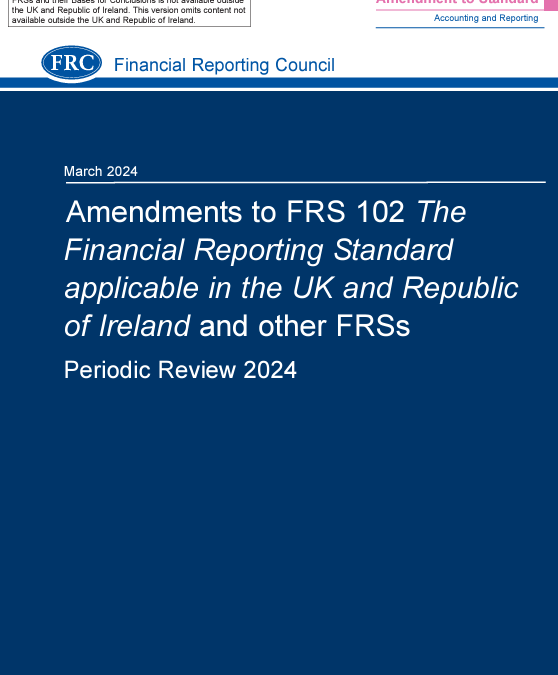
by John McCarthy Consulting Ltd. | Apr 17, 2024 | News
If you have an upcoming AML Compliance Review from your professional body, be sure to follow these six essential steps to prepare.
- Ensure that you have an appropriate Policies & Procedures document and a Firm-Wide Risk Assessment accompanied by a note of annual reviews of and amendments to the assessment.
- Ensure that relevant staff have received money laundering training accompanied by a record of training completion.
- Carry out some test checks of records of your client Risk Assessments and Client Due Diligence documentation to assess whether the firm’s Policies & Procedures are being properly implemented.
- Check whether an external AML Compliance Review beforehand might be beneficial.
- Check that the information held by your supervisory body about the firm and its MLRO are up to date and correct according to the firm’s most recent Annual Return.
- Ensure that all the work which the firm is doing is correctly licensed under the terms of the firm’s authorisation from your supervisory body (e.g. insolvency work and Clients’ Money).
Following these six steps will ensure that your firm is well prepared for its AML Compliance Review.
All our CPD courses are listed here, including our Audit Update webinar.
To hear more about the latest AML developments and how to be on the alert for suspicions of money laundering and terrorist financing under the Criminal Justice (Money Laundering and Terrorist Financing) Acts 2010 to 2021, see our latest Anti-Money Laundering webinar here.
Please also go to our website to see our:
- Anti-Money Laundering Policies Controls & Procedures Manual (March 2022) – View the Table of Contents click here.
- AML Webinar (December 2023) available here, which accompanies the AML Manual. It explains the latest legal AML reporting position for accountancy firms and includes a quiz. Upon completion, you receive a CPD Certificate of attendance in your inbox.
- letters of engagement and similar templates. Please visit our site here where immediate downloads are available in Word format. A bulk discount is available for orders of five or more items if bought together.
- ISQM TOOLKIT or if you prefer to chat through the different audit risks and potential appropriate responses presented by this new standard, please contact John McCarthy FCA by e-mail at john@jmcc.ie.
- We typically tailor ISQM training and brainstorming sessions to suit your firm’s unique requirements. The ISQM TOOLKIT 2022 is available to purchase here.

by John McCarthy Consulting Ltd. | Apr 7, 2024 | News
Following on from last week’s blog about the Financial Reporting Council publication on professional judgement, today we look at the final three biases mentioned in Professional Judgement Guidance. Awareness of these factors allows auditors to make more objective professional judgements and maintain a higher overall quality of work.
The Financial Reporting Council publication looks at six biases (taken from International Standard on Auditing (Ireland) 220 (Revised December 2021), ‘Quality Management for an Audit of Financial Statements’, paragraph A35 which states that the six biases set out here are not intended to be a complete list of all biases that could affect audit judgements, just an illustrative list of some that might be especially relevant.
The last three biases alert auditors to be aware of:
- Groupthink: a tendency to think or make decisions as a group that discourages creativity or individual responsibility.
- Overconfidence: a tendency to overestimate one’s own ability to make accurate assessments of risk or other judgements or decisions.
- Automation bias: a tendency to favor output generated from automated systems, even when human reasoning or contradictory information raises questions as to whether such output is reliable or fit for purpose.
The following example given in the publication helps illustrate how these types of bias affect professional judgement.
Example: A trainee auditor is using automated tools, specifically audit data analytics, in the identification of high-risk journal entries. She uses the program’s default selection parameters, without tailoring them based on the entity and its environment. The generated selection of “high-risk” journal entries includes several items categorised as such due to having been posted at the weekend by members of the finance team.
The trainee auditor knows from her prior work on the audit that the finance team often works weekends, especially at month-end, and thus she ought not to take the output of the analytic at face value. However, the trainee auditor places a lot of weight on the fact that a specialised piece of software deemed the journal entries unusual, and plans to perform further procedures over all of these journal entries. This is an example of automation bias, because she relies on the system output without considering whether her wider understanding might imply it is not fit for purpose.
Finally, the FRC publication encourages auditors to cultivate qualities to proactively support effective professional judgement, especially self-awareness, perceptiveness, listening skills, and willingness to consult with others.
To hear more about the latest AML developments and how to be on the alert for suspicions of money laundering and terrorist financing under the Criminal Justice (Money Laundering and Terrorist Financing) Acts 2010 to 2021, see our latest Anti-Money Laundering webinar here.
All our CPD courses are listed here including our Audit Update webinar .
Please also go to our website to see our:
- Anti-Money Laundering Policies Controls & Procedures Manual (March 2022) – View the Table of Contents click here.
- AML Webinar (December 2023) available here, which accompanies the AML Manual. It explains the latest legal AML reporting position for accountancy firms and includes a quiz. Upon completion, you receive a CPD Certificate of attendance in your inbox.
- letters of engagement and similar templates. Please visit our site here where immediate downloads are available in Word format. A bulk discount is available for orders of five or more items if bought together.
- ISQM TOOLKIT or if you prefer to chat through the different audit risks and potential appropriate responses presented by this new standard, please contact John McCarthy FCA by e-mail at john@jmcc.ie.
- We typically tailor ISQM training and brainstorming sessions to suit your firm’s unique requirements. The ISQM TOOLKIT 2022 is available to purchase here.

by John McCarthy Consulting Ltd. | Mar 28, 2024 | News
Making professional judgements is one of the most crucial and frequent tasks of an auditor. Failure to consistently practice good professional judgement can lead to a significant decrease in audit quality; therefore, it is essential to have an effective methodology for making professional judgements. In 2022 the Financial Reporting Council published guidance entitled Professional Judgement Guidance to address the key aspects which ought to be considered in every professional judgement.
One key aspect discussed in the document is “Mindset,” particularly understanding biases and other relevant psychological factors which can subconsciously hinder logical reasoning.
The Financial Reporting Council publication looks at six biases (taken from International Standard on Auditing (Ireland) 220 (Revised December 2021), ‘Quality Management for an Audit of Financial Statements’, paragraph A35 which states that the six biases set out here are not intended to be a complete list of all biases that could affect audit judgements, just an illustrative list of some that might be especially relevant.
The first three biases alert auditors to be aware of:
- Availability bias: a tendency to place more weight on events or experiences that immediately come to mind or are readily available than on those that are not.
- Confirmation bias: a tendency to place more weight on information that corroborates an existing belief than information that contradicts or casts doubt on that belief.
- Anchoring bias: a tendency to use an initial piece of information as an anchor against which subsequent information is inadequately assessed.
To illustrate anchoring bias, the FRC uses the example of an audit senior manager tasked with determining performance materiality for a company’s current year’s engagement. He starts by looking at the audit file from the prior year and sees that the engagement team set performance materiality at 75% of materiality; however, he is aware that a higher than expected number of misstatements were identified in the prior year, and that the control environment remains relatively weak. To compensate for this he resolves to choose a lower percentage of materiality for performance materiality, setting it at 70% of materiality.
His judgement here may have been affected by anchoring bias, if he put undue weight on the initial piece of information gathered, namely the prior year figure. If he had started from a broader consideration of the entity and its environment and a range of factors that affect the expected level of misstatements in the current year, he may have arrived at a different figure.
Awareness of biases such as these can help auditors avoid falling into these traps, and thus enables the auditor to make more objective professional judgements.
We will cover the last three biases in next week’s blog.
To hear more about the latest AML developments and how to be on the alert for suspicions of money laundering and terrorist financing under the Criminal Justice (Money Laundering and Terrorist Financing) Acts 2010 to 2021, see our latest Anti-Money Laundering webinar here.
All our courses are listed here.
Please also go to our website to see our:
- Anti-Money Laundering Policies Controls & Procedures Manual (March 2022) – View the Table of Contents click here.
- AML Webinar (December 2023) available here, which accompanies the AML Manual. It explains the latest legal AML reporting position for accountancy firms and includes a quiz. Upon completion, you receive a CPD Certificate of attendance in your inbox.
- letters of engagement and similar templates. Please visit our site here where immediate downloads are available in Word format. A bulk discount is available for orders of five or more items if bought together.
- ISQM TOOLKIT or if you prefer to chat through the different audit risks and potential appropriate responses presented by this new standard, please contact John McCarthy FCA by e-mail at john@jmcc.ie.
- We typically tailor ISQM training and brainstorming sessions to suit your firm’s unique requirements. The ISQM TOOLKIT 2022 is available to purchase here.

by John McCarthy Consulting Ltd. | Mar 28, 2024 | News
Revenue recognition and lease accounting rules are the main changes from January 2026 arising from newly published amendments to FRS 102.
On 27th March the Financial Reporting Council published a 285 page list of the Amendments to FRS 102, FRS 105 and other FRSs. These changes will come into force from 1 January 2026 with early adoption allowed, provided all the changes are adopted simultaneously.
The changes are too extensive to be covered in this short blog but here is a flavour of what’s changing.
An earlier effective date (among changes in other FRS) applies to new disclosures about supplier finance arrangements in Section 7 of FRS 102 ‘Statement of Cash Flows’ for periods beginning on or after 1 January 2025, with early application permitted.
Where an entity adopts these amendments early:
- In the UK it shall disclose that fact (regardless of entity size), while,
- Small entities in the Republic of Ireland, are encouraged to disclose that fact.
Revenue Recognition -the main change is the use of the 5 step model from (IFRS 15) which will impact businesses that have contracts that bundle goods and services with variable consideration, warranties, customer options or significant financing components. It’s unlikely that this will impact most SMEs that much. No restatement of comparatives is required on transition.
Lease accounting – lessors will see little change, but for lessees there are major changes. Right of use assets (RoU) (as defined) are to be capitalised on the balance sheet as a RoU asset with a corresponding liability.
There are exemptions for certain:
- short term leases (defined as a lease that, at the commencement date, has a lease term of 12 months or less. A lease that contains a purchase option is not a short-term lease; and
- low value assets – defined more in terms of what they are not than what they are. The FRS gives a list of what are not on the list including cars, buses, trucks, tractors, land and buildings.
Such leases will still be treated as operating leases, taking the lease expense to profit or loss and a finance charge on the lease liability.
Like the transition rules on revenue recognition no restatement of comparatives is required on transition to the new leasing provisions.
The main impact of the leasing changes will be that EBITDA measures will change because the operating lease expense is replaced by depreciation on the asset and interest occurring on the unwinding of the corresponding lease liability as the lease is paid. For some businesses this may have a negative impact on debt covenants involving EBITDA measures.
The Financial Reporting Council will issue updated Staff Factsheets and the actual Standards themselves later in 2024. It’s hoped that by having an implementation period of 21 months before the effective date rather than the original promise of ‘at least 12 months’, the extended period will provide a bit more breathing space for users.
To hear more about the latest AML developments and how to be on the alert for suspicions of money laundering and terrorist financing under the Criminal Justice (Money Laundering and Terrorist Financing) Acts 2010 to 2021, see our latest Anti-Money Laundering webinar here.
All our courses are listed here.
Please also go to our website to see our:
- Anti-Money Laundering Policies Controls & Procedures Manual (March 2022) – View the Table of Contents click here.
- AML Webinar (December 2023) available here, which accompanies the AML Manual. It explains the latest legal AML reporting position for accountancy firms and includes a quiz. Upon completion, you receive a CPD Certificate of attendance in your inbox.
- letters of engagement and similar templates. Please visit our site here where immediate downloads are available in Word format. A bulk discount is available for orders of five or more items if bought together.
- ISQM TOOLKIT or if you prefer to chat through the different audit risks and potential appropriate responses presented by this new standard, please contact John McCarthy FCA by e-mail at john@jmcc.ie.
- We typically tailor ISQM training and brainstorming sessions to suit your firm’s unique requirements. The ISQM TOOLKIT 2022 is available to purchase here.

by John McCarthy Consulting Ltd. | Mar 25, 2024 | News
A recent UK High Court case reported in January 2024 makes interesting reading. The auditors were cleared of any liability in a claim for negligence brought by their former client.
A claim for negligence was made by a Travel firm called Ickenham Travel Group (Ickenham) against its auditors, Tiffin Green (TG) Ickenham alleged that as a result of the auditors’ negligence Ickenham achieved £6m less than it could have achieved otherwise, when it sold a business division called BTD.
The claim stated that TG were:
- Negligent and
- In breach of contract;
- Failed to identify various irregularities and an understatement of £4.5m in the financial statements (caused by overstated creditors);
- For each of the four years ended 30 September 2014, 2015, 2016 and 2017 in which they audited Ickenham.
Ickenham stated that if the error had been identified, the company could have taken action to address the amount and avoid any recurrence of the issue.
Ickenham is a travel agency and that had two divisions until July 2019:
- a business travel division called ‘Business Travel Direct (BTD)’ and
- a consumer travel agency, called ‘LetsGo2’.
In early 2019, Ickenham discovered serious irregularities in its accounting systems and records, which originated before the FY14. As a result the trade creditors of LetsGo2 were overstated by £4.5m (the ‘understatement’). In 2019, the combined turnover of LetsGo2 and BTD was £95m, so the understatement was material, even though the accounting problems only related to LetsGo2.
The £4.5m understatement is believed to have built up over a long number of years and started before TG was appointed. It was accepted by Ickenham at the end of the trial that the understatement was at least £2.5m in September 2014 when TG were first appointed. TG first identified the understatement before completion of the audit of the FY 2018 , when new auditors were appointed.
In response to Ickenham’s claim, TG said that BTD was sold for its true value and among other matters was not the ‘type of loss for which TG was liable’.
The Court agreed with the expert witnesses for both sides who gave evidence at the trial and concluded that ‘a reasonably competent auditor probably would have identified and alerted Ickenham to the irregularities and understatement’. TG had failed to do so and had accordingly breached their duties as auditors in both contract and tort by failing to act as a reasonably competent auditor.
These breaches included:
- failing to identify the understatement of £4.5m and
- failing to identify the irregularities’.
Judge Tinker ruled in favour of TG stating that Ickenham had failed to prove that it suffered any loss when it sold BTD, rejecting the loss and factual causation argument.
In the writer’s opinion the claimant would be more likely to have made a more successful case if they had made a different type of claim.
To hear more about the latest AML developments and how to be on the alert for suspicions of money laundering and terrorist financing under the Criminal Justice (Money Laundering and Terrorist Financing) Acts 2010 to 2021, see our latest Anti-Money Laundering webinar here.
All our courses are listed here.
Please also go to our website to see our:
- Anti-Money Laundering Policies Controls & Procedures Manual (March 2022) – View the Table of Contents click here.
- AML Webinar (December 2023) available here, which accompanies the AML Manual. It explains the latest legal AML reporting position for accountancy firms and includes a quiz. Upon completion, you receive a CPD Certificate of attendance in your inbox.
- letters of engagement and similar templates. Please visit our site here where immediate downloads are available in Word format. A bulk discount is available for orders of five or more items if bought together.
- ISQM TOOLKIT or if you prefer to chat through the different audit risks and potential appropriate responses presented by this new standard, please contact John McCarthy FCA by e-mail at john@jmcc.ie.
- We typically tailor ISQM training and brainstorming sessions to suit your firm’s unique requirements. The ISQM TOOLKIT 2022 is available to purchase here.

by John McCarthy Consulting Ltd. | Mar 19, 2024 | News
A 2023 ACCA disciplinary decision relating to a member makes interesting reading.
The main complaint was that he had created a document falsely claiming that his AML policies had been in existence for five years, when in fact they had not.
An ACCA remote AML inspection in October 2020 concluded by seeking additional documents including the firm’s AML Policy and Procedures document.
The ACCA compliance officer asked for the original version of the AML policy allegedly created in October 2018. The member claimed no updates had been made to the document and said that after reviewing the firm’s AML policy there was no need to make any changes to it.
At the subsequent disciplinary tribunal, the ACCA Case Officer pointed out that the AML Policy and Procedures document could not have been created in October 2018 because it was based on and ACCA technical factsheet “Anti-Money Laundering (AML) Policy and Procedures”, published by ACCA in February 2020.
The member eventually admitted that he had acted dishonestly when he claimed the AML policy had been in place since October 2018.
AML breaches
The AML Policy and Procedures created by the member had the following deficiencies:
There was a lack of evidence of:
- A Firm-Wide Risk Assessment;
- AML training to relevant staff;
- The firm’s criteria for different risk ratings.
There were also problems with:
- Inconsistency in the firm’s application of its AML Policy and Procedures Manual, because some clients had been incorrectly assessed as ‘medium risk’ when they displayed characteristics of one of more of the ‘high-risk’ factors listed in the firm’s AML Policy and Procedures document
- Lack of evidence of AML training for staff;
- The simple ‘Yes’/’No’ template used didn’t provide an assessment of the risks the firm faced or the actions to take to mitigate those risks;
- The AML template document did to relate to relevant AML processes operated by the firm and had few details of the firm’s day-to-day processes.
The disciplinary committee decided that Hung’s dishonesty and AML breaches reached the highest threshold of sanctions and excluded him from membership of the ACCA and he was ordered to pay costs of £6,000.
To hear more about the latest AML developments and how to be on the alert for suspicions of money laundering and terrorist financing under the Criminal Justice (Money Laundering and Terrorist Financing) Acts 2010 to 2021, see our latest Anti-Money Laundering webinar here.
All our courses are listed here.
Please also go to our website to see our:
- Anti-Money Laundering Policies Controls & Procedures Manual (March 2022) – View the Table of Contents click here.
- AML Webinar (December 2023) available here, which accompanies the AML Manual. It explains the latest legal AML reporting position for accountancy firms and includes a quiz. Upon completion, you receive a CPD Certificate of attendance in your inbox.
- letters of engagement and similar templates. Please visit our site here where immediate downloads are available in Word format. A bulk discount is available for orders of five or more items if bought together.
- ISQM TOOLKIT or if you prefer to chat through the different audit risks and potential appropriate responses presented by this new standard, please contact John McCarthy FCA by e-mail at john@jmcc.ie.
- We typically tailor ISQM training and brainstorming sessions to suit your firm’s unique requirements. The ISQM TOOLKIT 2022 is available to purchase here.










